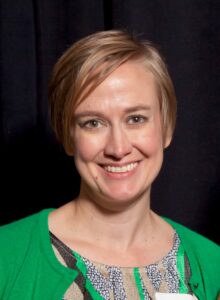New Measure Helps Determine Health Independence Levels for Young Adults on the Spectrum
As adolescents with autism transition to adulthood, many questions arise about how prepared they are to take on adult responsibilities, such as driving, getting a job and living on their own. One important aspect of this transition is the individual with autism’s level of independence regarding their own health. Now, Dr. Nancy Cheak-Zamora, an associate professor of health sciences at the University of Missouri and a Thompson Center researcher, has developed a measure that can determine the level of health-related independence (HRI) among individuals on the spectrum.
“For those people on the spectrum who are transitioning into adulthood, it is important to understand what skills and knowledge they have and what skills they lack pertaining to managing their own health,” Cheak-Zamora said. “It’s also important to measure what level of independence these individuals want to have regarding their health so we know what skills we need to teach them. The goal is to help them reach a level of independence that makes them feel fulfilled.”
Cheak-Zamora says health-related independence includes a large array of knowledge and skills, including understanding their own medical conditions and history, the ability to schedule doctor appointments, pick up and correctly take prescription medicines, monitor changes in health, and how and when to appropriately ask questions and bring up problems while at a doctor appointment.
“For people who are typically developing, many of these skills are learned while observing their parents during adolescent stages of growth,” Cheak-Zamora said. “However, for individuals on the spectrum, these skills often need to be specifically taught and reinforced with practice.”
The HRI measure examines nine different aspects of health independence, including communication skills and goal-setting. Cheak-Zamora says her HRI measure can help parents, teachers and other caregivers determine an adolescent’s current level of health independence and how much independence they truly seek. Once these levels have been determined, teachers and parents can work on building these health skills in their children with autism to achieve an appropriate level of independence based on the individual’s desires and their abilities.
This research is funded by a three-year U.S. Department of Defense grant which has been extended to a fourth year. Cheak-Zamora currently is working on publishing her HRI measurement study and hopes to have it in press in early 2018. Cheak-Zamora says the next phase of this research is to secure continued funding to spread the use of the HRI to caregivers and parents.


